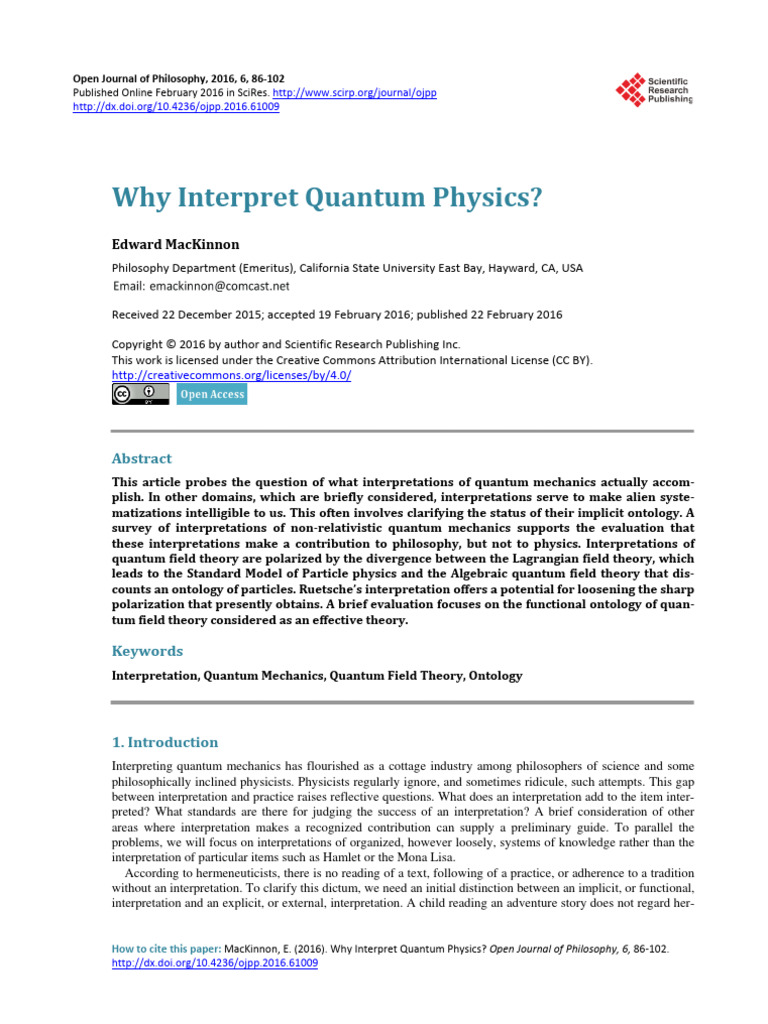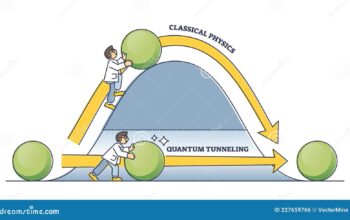Quantum mechanics constitutes one of the most transformative frameworks within the realm of modern physics, serving as a foundation from which we understand various phenomena at microscopic scales. Its implications extend far beyond mere theoretical discourse, profoundly influencing diverse scientific disciplines such as chemistry, materials science, and even cosmology. This article outlines the multifaceted importance of quantum mechanics in science, emphasizing its paradigmatic shifts, application across domains, and its role in shaping contemporary technology.
The remarkable shift brought by quantum mechanics cannot be overstated. At the outset of the twentieth century, classical mechanics, with its deterministic worldview, was the epitome of scientific understanding. However, with the advent of quantum theory, a new perspective emerged, revealing the inherently probabilistic nature of particles at atomic and subatomic levels. This shift not only transformed our comprehension of atoms and subatomic particles but also challenged and ultimately supplanted classical notions of causality and predictability in the micro-universe. The principle of superposition, for example, posits that particles can exist in multiple states simultaneously, a notion that starkly contrasts with traditional binary thinking.
Moreover, quantum mechanics elucidates phenomena such as wave-particle duality and entanglement, which further emphasize the interconnectedness of the quantum world. Wave-particle duality suggests that quantum entities exhibit both particle-like and wave-like characteristics, depending on observational context. Such insights catalyze a reevaluation of the fundamental notions of reality, impacting philosophical and scientific discourse alike. Entanglement, branded by Einstein as “spooky action at a distance,” illustrates a quintessentially quantum phenomenon where particles become interconnected, allowing instantaneous correlations over arbitrary distances. This challenges classical intuitions about separability and locality.
The significance of quantum mechanics extends profoundly into chemistry. Quantum theories have revolutionized our understanding of atomic structure, bonding, and the behavior of molecules. Quantum chemistry employs the principles of quantum mechanics to explain chemical reactions and molecular formation. The development of quantum computational methods enables scientists to predict molecular interactions with astonishing accuracy, paving the way for innovations in drug design and material science. Quantum mechanics facilitates the understanding of electron configurations, explaining why specific elements exhibit distinct chemical properties and reactivities. Consequently, the meticulous mapping of quantum states provides invaluable insights into the synthesis of new compounds and materials.
Materials science is another domain profoundly influenced by quantum mechanics. Through quantum mechanics, researchers can elucidate the electronic properties of materials, leading to the discovery and optimization of semiconductors and insulators. The development of quantum dots, nanostructures that exhibit unique optical and electronic properties, exemplifies how quantum principles can be harnessed for technological advancements. These innovations have meaningful applications in electronics, photovoltaics, and even biomedicine, where understanding the quantum behavior of materials leads to more efficient energy solutions and advanced imaging techniques.
Furthermore, quantum mechanics plays a pivotal role in the burgeoning field of quantum computing. Unlike classical computers, which rely on bits as fundamental units of information, quantum computers utilize quantum bits, or qubits, that can exist in superposition. This property grants quantum computers unparalleled computational power for specific tasks, such as factoring large integers and simulating quantum systems more efficiently than their classical counterparts. The promise of quantum computing underscores a revolutionary paradigm shift that may lead to breakthroughs in cryptography, artificial intelligence, and complex system modeling.
The implications of quantum mechanics also permeate the very fabric of cosmology and theoretical physics. The concept of quantum fluctuations in the early universe posits that tiny variations in quantum fields led to the large-scale structure we observe today. Quantum cosmology attempts to marry quantum mechanics with general relativity, striving to resolve fundamental questions about the origins and nature of the universe. Theoreticians explore concepts such as quantum gravity, which seeks to unify the gravitational force with quantum mechanics, grappling with the refined understanding of black holes, dark matter, and the universe’s fate.
In addition to these applications, the philosophical implications of quantum mechanics engender rich scholarly discussion. The interpretational challenges posed by quantum phenomena invite a multitude of ontological considerations regarding the nature of reality, measurement, and the role of observers. Whether one subscribes to the Copenhagen interpretation, many-worlds interpretation, or other variants, the existence of divergent interpretations showcases the profundity of quantum mechanics: it not only describes physical phenomena but also stimulates extensive theoretical inquiry into the nature of existence itself.
As scientists venture further into the quantum frontier, the importance of quantum mechanics becomes ever more pronounced. Its principles have catalyzed revolutionary technologies, refined scientific understanding, and stimulated profound philosophical debates. The blend of theory and application that quantum mechanics offers is integral to modern scientific enterprise, influencing sectors ranging from healthcare and communications to energy and beyond. Engaging with the complexities of quantum mechanics not only heightens our comprehension of the universe but also enriches our technological arsenal as we navigate the uncharted territories of quantum phenomena.












